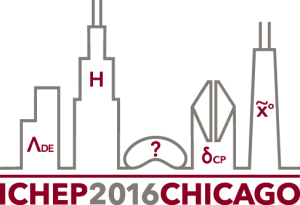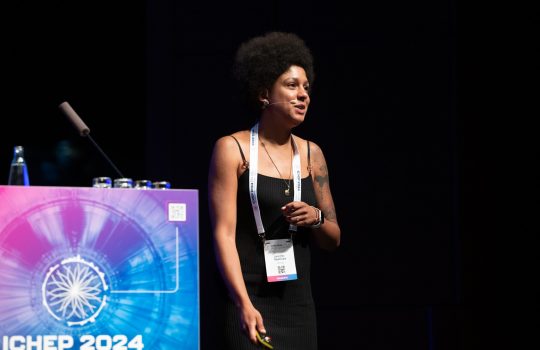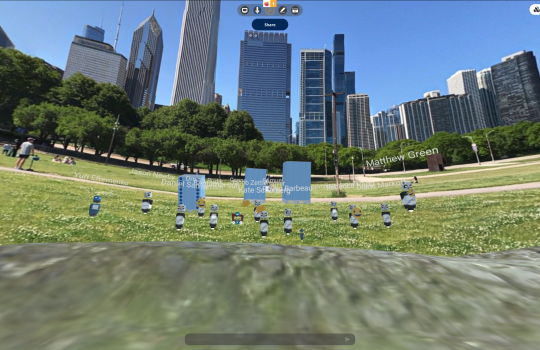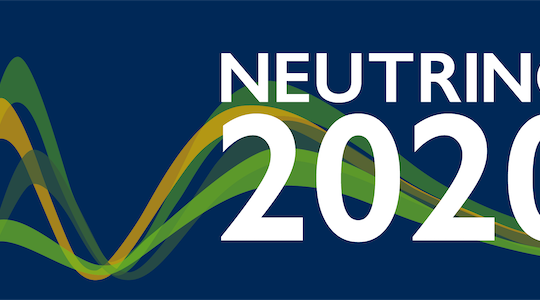 More than 1,350 physicists from around the world will converge in Chicago for the biennial International Conference on High Energy Physics (ICHEP) in August to share new research results, announce new projects, and talk about the most intriguing mysteries of the universe. The conference will meet from Wednesday, Aug. 3, to Wednesday, Aug. 10 at the Sheraton Grand Hotel, 301 E. North Water St., and will welcome scientists from 49 countries.
More than 1,350 physicists from around the world will converge in Chicago for the biennial International Conference on High Energy Physics (ICHEP) in August to share new research results, announce new projects, and talk about the most intriguing mysteries of the universe. The conference will meet from Wednesday, Aug. 3, to Wednesday, Aug. 10 at the Sheraton Grand Hotel, 301 E. North Water St., and will welcome scientists from 49 countries.
“The International Conference on High Energy Physics will be the scientific event of the year in Chicago,” said Young-Kee Kim, chair of the ICHEP organizing committee and the Louis Block Professor in Physics at the University of Chicago. “A great many scientists who specialize in particle physics, cosmology, accelerator science and related fields work in this region’s excellent research universities and our two outstanding national laboratories. We all look forward to showing this vibrant city to our colleagues and discussing the latest developments of our science.”
For those attending the conference, a full schedule of parallel and plenary sessions is available online.
The conference includes two free events specially designed for the general public: The Windy City Physics Slam and a public lecture on the recent, worldwide-headline-making detection of gravitational waves.
The Windy City Physics Slam, hosted by WGN-TV Chief Meteorologist Tom Skilling, will take place at 3 p.m. on Sunday, Aug. 7, at the Sheraton Grand Hotel Chicago Ballroom. Inspired by poetry slams, the Physics Slam will pit researchers against each other in a contest to make their field of study sound as interesting, compelling, and enjoyable as possible. Five scientists from around the world will compete, using music, dance, props and anything else they want, with the winner determined by audience applause.
The public lecture, titled “The Detection of Gravitational Waves from Binary Black Hole Mergers,” will begin at 6:30 p.m. Tuesday, Aug. 9, at the Sheraton Grand Hotel Chicago Balloom. The speaker will be Barry Barish, the Linde Professor of Physics Emeritus at the California Institute of Technology. Barish has played multiple key roles for the Laser Interferometer Gravitational-wave Observatory (LIGO) since 1994. LIGO has made international headlines twice this year with its discoveries of gravitational waves, whose existence were predicted by Albert Einstein in his 1915 general theory of relativity.
Members of the public do not need to be registered for ICHEP to attend these free events. Seating will be first-come, first-served.



